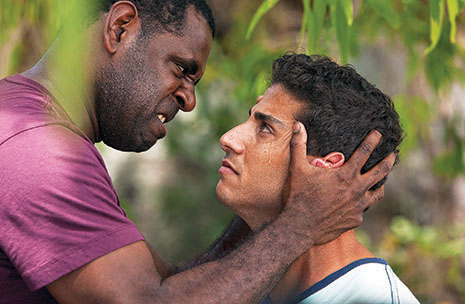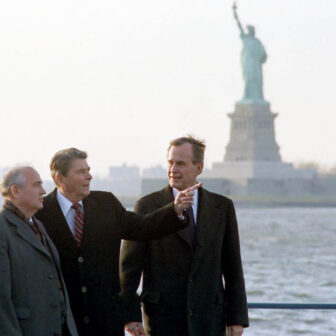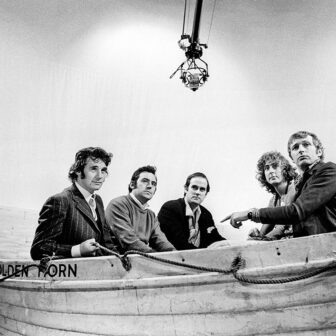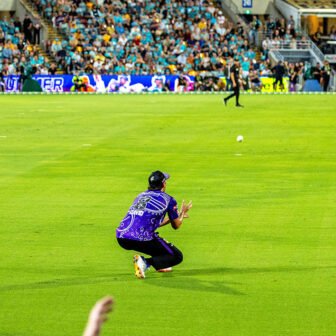FANS of TV crime shows may have been alarmed to read last year that the BBC was planning to reduce its enormous output of cop dramas, murder mysteries and serial-killer sagas in an attempt to reinvigorate its programming mix. There’s “too much crime” and “too many male detectives”, said BBC1 controller Danny Cohen. “I want to broaden the palette a bit."
If that was the plan, it doesn’t seem to be working – not yet, anyway. Australian TV viewers are seeing more British bobbies than ever before. The ABC has given us the latest seasons of Luther, Ashes to Ashes, Spooks, New Tricks and Dalziel and Pascoe, along with new franchises like the Roman detective drama/romance Zen, starring Rufus Sewell. On the Eurocrime front, SBS has come to the party with season 2 of The Killing and the latest Wallander telemovies. And at home, the ABC has invested serious money in two new locally-produced series – The Straits and Miss Fisher’s Murder Mysteries. How can we explain the enduring popularity of crime, this most dog-eared of genres?
Perhaps our appetite for law and disorder has something to do with the genre’s flexibility. TV crime is constantly being reinvented as established traditions give way to new experiments with storytelling and style. Today’s social anxieties and moral panics are integrated into old narrative forms. As the film theorist Steve Neale famously argued, “genres are instances of repetition and difference” – and a look at the current schedules of Australian broadcasters provides ample evidence for this claim.
The trick to a successful crime series seems to be keeping the essential ingredients in place while adding spice in the form of new settings, character types and narrative devices. Hence we have had time-travelling cops (Life on Mars, Ashes to Ashes), ultra-gritty handheld realism (Southland), and impossibly complex storylines (The Killing), but all reliant on the interplay of mystery and revelation that is at the heart of criminal fictions.
Take, for example, the second season of Luther, a BBC-produced police procedural starring Idris Elba (The Wire). A conventional renegade-detective drama, Luther treads a fine line between transgression and sentimentality. The Independent described it as “a loose constellation of cop-show clichés”, and that’s exactly the point. The fun of Luther is seeing how and when these elements come together, and which special spices make it into the mix.
Luther’s second season, currently screening on ABC1, is style over substance in the best possible way. Every detail of the production is painstakingly cool, from the green-grey palette to the Massive Attack soundtrack and the bohemian villains. While retaining the grimy urban aesthetic of much Britcrime, it jettisons the social-realist tendencies of shows like Taggart or Prime Suspect in favour of a more kinetic, cinematic look. Luther doesn’t always make a lot of sense, but as an adventure in art direction it is pretty hard to beat.
Season two of The Killing (Forbrydelsen) is a different kind of beast. Its experimentation is all at the level of narrative, and its special sauce is its Byzantine plotting. The taciturn Copenhagen detective Sarah Lund is once more given the task of getting to the bottom of a grisly crime – the murder of an army lawyer. The field of suspects is huge, and one by one they come under suspicion: an unhinged soldier, a government minister, an army commander, a dodgy imam, a police officer. The investigation takes place against a backdrop of federal politics, as the Danish coalition government tries to piece together a new anti-terrorist law while harnessing populist xenophobia for its own ends. If you saw the first season of The Killing, or its American remake, you will know the general structure.
The Killing takes great care with its muted urban aesthetic – like Luther, it is full of dazzling night-time helicopter shots – but the emphasis is always on the build-up and release of tension. This is the kind of show Alfred Hitchcock might have enjoyed making after watching five seasons of The Wire back to back. The Killing takes great delight in adding layer upon layer of intrigue: a murder investigation becomes our entry point into an ever-widening circle of corruption.
Smaller media markets like Australia find it difficult to produce shows on a par with The Killing, which was financed by a network of affluent Scandinavian public-service broadcasters. But the ABC is giving it a red-hot go in 2012. Its two latest flagship dramas are Miss Fisher’s Murder Mysteries and The Straits. A new season of the legal black comedy Rake and a pair of telemovies based on Peter Temple’s Jack Irish novels is also on the way.
Miss Fisher’s Murder Mysteries is equal parts costume comedy, crime show and National Trust advertisement. Essie Davis, fresh from her star turn in The Slap, stars as the redoutable Phryne Fisher, an amateur sleuth in 1920s Melbourne. Davis is great but the real talent is off-screen: Miss Fisher is all about the costumes, sets and props (think pearl-handled pistols, well-upholstered Edwardian matrons and larrikins in flat caps). With its feet firmly planted in the cosy mystery genre of Miss Marple and Midsomer Murders, it doesn’t take itself too seriously, but there’s plenty to like here.
For my money, though, The Straits is the more interesting show. It revolves around an extended family of drug smugglers, the Montebellos, and their ageing father (played by British screen veteran Brian Cox) who must choose a successor among three adopted sons. Aaron Fa’aoso, Firass Dirani and Jimi Bani play the brothers, with Rena Owen (Once Were Warriors) cast as the family’s Torres Strait Islander matriarch. Each episode is a romp through a different part of the Oceania underworld – from meth labs in Papua New Guinea to the ecstasy trade in Cairns. The Montebello clan, their offsiders and their various lovers oversee this empire, cutting deals with the cops and the local bikie gang when needed.
Like all crime dramas, The Straits is a remix of familiar elements: a family succession melodrama, a gangster epic, a tropical fantasia. Its special spice is the way it reimagines the Top End as an integrated region of transnational crime. While the Anglo-Islander Montebello family, the white bikies, the PNG Raskols and the gangs down south inevitably butt heads – these turfwars are the fuel which drives the series forward – the general impression we’re left with is of a prosperous, interconnected, and relatively harmonious criminal community, which takes in not only tropical Queensland but also PNG, the Tiwi Islands and the Torres Strait.
The Straits is the only TV show I have seen that uses a popular genre to explore Australia’s interdependence with its neighbours. The multiethnic Australia of The Straits is intimately involved in the Pacific, and vice versa, for mutual benefit. These relations are not about aid, refugees, military intervention, white man’s burden or colonial compassion. They are about crime and profit. There is something to be said for this view of the region.
Of course, portraying Papua New Guinea as a land of gun-runners does not count as a “progressive” representation according to the standard script of media diversity, in which marginal communities should be represented positively or not at all. But I think that’s the point the show is trying to make. The Straits seems keen to break out of this. While SBS’s East West 101 used the police-procedural genre as a pretext for an exploration of suburban xenophobia and institutionalised racism, The Straits avoids this locked-down dialectic of centre and margins. There are no victims here, no traditions under threat from modernity – only different shades of criminality. “Tribal” communities are reimagined as smuggling syndicates. Islander kinship systems become vehicles for surveillance and information-gathering. In one episode, a shipwrecked Sri Lankan asylum-seeker is plucked out of the water and immediately recruited as a Montebello henchman.
In The Straits, crime becomes a vehicle for intercultural commerce and contact. It is what ties everyone together. In this sense the show offers us a different vision of how and where Australia fits within the Asia-Pacific region. Buried within its reinvention of the crime genre are the seeds of postcolonial critique.
And so the genre’s evolution continues. Each series introduces permutations in a tried-and-tested formula, and new kinds of spice to keep us coming back for more. This year’s TV bounty has been a good one for murder-mystery junkies and police-procedural tragics. Let’s hope the crime wave continues. •




